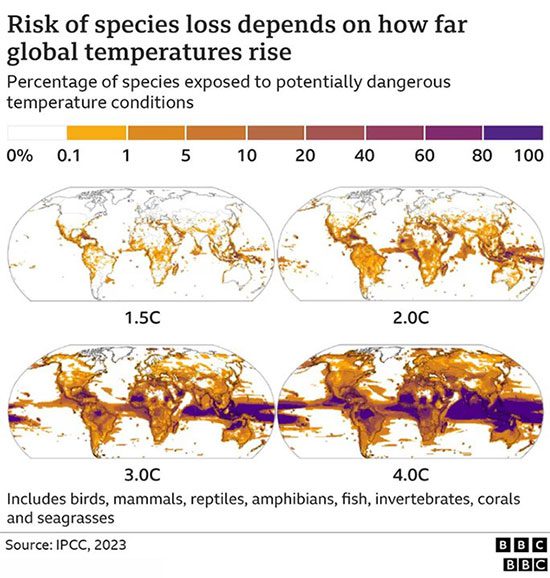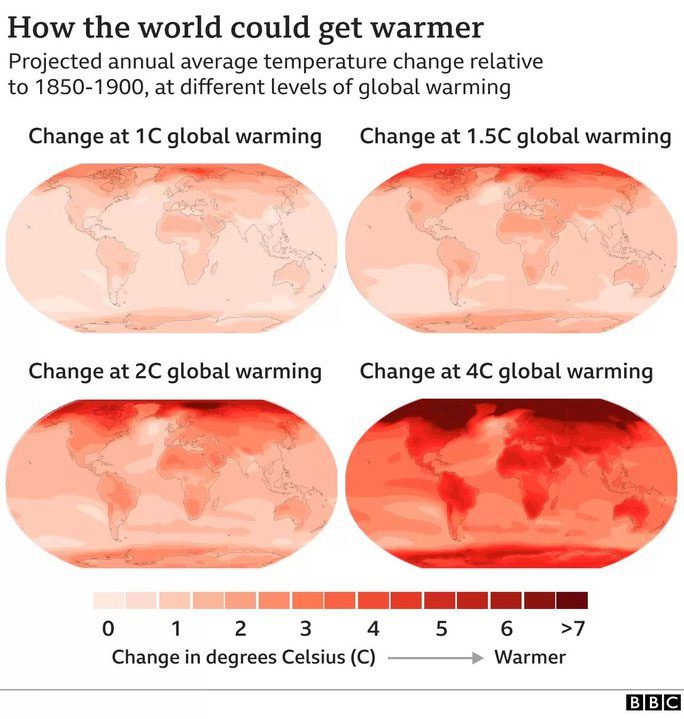A shocking report has just been released by the United Nations Special Advisory Council, warning of a series of disasters threatening Earth, including a once-in-a-century “great flood” that is expected to occur annually.
According to the BBC, scientists from the Intergovernmental Panel on Climate Change (IPCC)—a crucial advisory body of the United Nations—met in Switzerland, where glaciers are melting, to unveil a report with chilling statistics.
UN Secretary-General Antonio Guterres stated that this report serves as a “survival guide” for humanity.
The report reveals that the concentration of CO2 responsible for global warming in the atmosphere is at its highest level in 2 million years. The world is warmer than at any time in the past 125,000 years and will continue to heat up in the coming decades.

Map showing “death zones” with dangerous temperatures for all species if Earth continues to warm by 1.5 – 2 – 3 – 4 degrees Celsius – (Photo: IPCC/BCC).
This is a “prophecy” for a future that seems like something out of a movie; for example, extreme coastal flooding that used to occur once every century is projected to happen at least annually in half of the tidal measuring locations worldwide by 2100.
However, the report also affirms that a rapid reduction in fossil fuel use could prevent the worst impacts of climate change.
Achieving this is not easy. “The window of opportunity to secure a livable and sustainable future for all is closing rapidly,” the IPCC wrote; while Guterres added that this requires all nations to develop plans to reduce emissions to zero within the next decade.
In response to the IPCC, the President of the Alliance of Small Island States, Fatumanava-o-Upolu III, Dr. Pa’olelei Luteru, stated: “While our people are being displaced from their homes and climate commitments are unmet, the fossil fuel industry is profiting with billions of dollars in revenue.”

How the Earth is being “heated” by region with varying average increases – (Photo: IPCC/BCC).
IPCC authors are optimistic that significant changes can be achieved, pointing to a substantial drop in energy prices due to the development of solar and wind energy.
They also argue that changes in diet, reducing food waste, and shifting to low-carbon transportation can significantly cut emissions from various sectors.
However, the report also acknowledges that in addition to achieving net-zero emissions as soon as possible, large-scale CO2 removal technology will be necessary.


















































